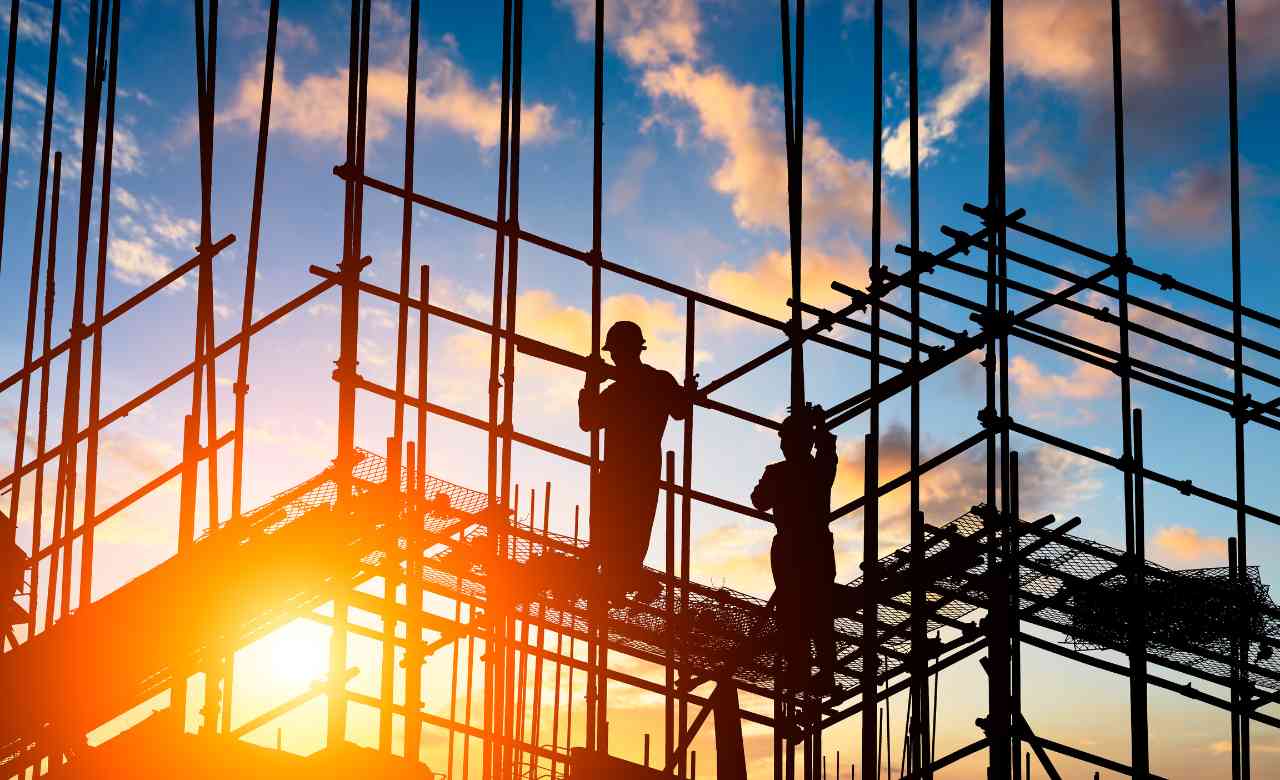Construction Loans - Related Business Funding





No Cost, No Obligation Quote
"*" indicates required fields
Testimonial
Hear why a multi million steel company choose us
Easy Sign Up
Simple online application completed within minutes.
Same-Day Decision
Easy and fast so you can focus on running your business.
Fast Funding.
Funds are automatically deposited into your business account the same day.
Bad Credit?
Business loans for bad credit. No matter your profile, what matters is your cash flow.
Practice Loans
construction loans
Introduction to construction loans
Construction loans play a vital role in the world of real estate development. Whether you’re a homeowner planning to build your dream house or a seasoned developer embarking on a large-scale project, understanding construction loans is essential.
Building a new home or undertaking a major renovation project can be an exciting but complex endeavor. It requires careful planning, financial resources, and access to funding throughout the construction process. This is where construction loans come into play. These specialized loans are designed to provide financing during the construction phase, ensuring that builders and developers have the necessary funds to complete their projects.



A FEW WAYS TO USE YOUR FUNDS:
- Business Expansion
- Pay Bills while Waiting for Insurance A/R
- Advertise Your Business
- Cash Flow Management
To Learn More about small business administration Loans for your small business
or email us at
[email protected]
Unlike traditional mortgage loans, which provide funding for already built homes, construction loans are tailored specifically for construction projects. They provide short-term financing that covers the cost of land acquisition, construction materials, labor, permits, and other expenses associated with building or renovating a property.
What Is a Construction Loan?
A construction loan is a specialized type of loan designed to provide financing for the construction or renovation of a property. Unlike traditional mortgage loans that are used to purchase already-built homes, construction loans are specifically tailored to cover the costs associated with building a new property or undertaking a significant remodeling project.
Construction loans differ from conventional mortgage loans in several key ways. Firstly, they typically have a shorter duration, as they are intended to cover the construction phase rather than the long-term financing of the property. Secondly, construction loans often involve a disbursement process where funds are released in stages or “draws” based on the progress of the construction project. This ensures that the funds are used effectively and that the project is moving forward as planned.
construction Loan
MAX FUNDING AMOUNT $50K – $50M
RATES Starting at 9%
Speed of Funds 24hour funding
How Do Construction Loans Work?
At LoanCater, construction loans are designed to provide financing for your construction projects, whether you’re building a new property or undertaking a major renovation. Here’s how construction loans work at LoanCater:
1. Pre-qualification: The first step is to determine your eligibility for a construction loan. LoanCater will assess your creditworthiness, financial stability, and construction plans to determine if you qualify for the loan.
2. Application and Documentation: Once pre-qualified, you’ll need to complete the loan application process. This involves providing necessary documentation, such as construction plans, cost estimates, and financial statements, to support your loan request.
3. Loan Approval: LoanCater will carefully review your application and supporting documents. If approved, you’ll receive an offer outlining the loan amount, interest rates, repayment terms, and any other conditions specific to your loan.
4. Disbursement Schedule: Once you accept the loan offer, LoanCater will establish a disbursement schedule. This schedule outlines when and how funds will be released throughout the construction process. Typically, funds are disbursed in stages based on project milestones.
5. Construction Phase: As you progress with your construction project, LoanCater will conduct periodic inspections to ensure that the work is proceeding according to plan. Based on the inspection results, LoanCater will release the funds accordingly.
6. Interest Payments: During the construction phase, you’ll typically only make interest payments on the disbursed funds. This reduces the financial burden while the project is ongoing.
7. Transition to Permanent Financing: Once the construction is complete, LoanCater can help you transition to a permanent financing option, such as a mortgage loan. This allows you to begin making regular principal and interest payments.
It’s important to note that LoanCater offers personalized construction loan solutions tailored to your specific needs. They understand the unique requirements of construction projects and work closely with you to ensure a smooth loan process from start to finish.
By choosing LoanCater for your construction loan needs, you can benefit from their expertise, competitive interest rates, and commitment to customer satisfaction. Their experienced team will guide you through the entire loan process, providing support and assistance at every stage.
With LoanCater, you can turn your construction dreams into reality. Whether you’re building your dream home or embarking on a commercial construction project, LoanCater is here to provide the financial support you need.
Construction Loans Compared To Other Products
LOAN TYPES
- Merchant Cash Advances
- SBA Loan
- Business Term Loan
- Business Line of Credit
- Construction loans
- Equipment Financing
- Revenue Based Business Loans
MAX AMOUNTS
- $5k – $1m
- $50k-$5.5m
- $10k to $5m
- $1k to $1m
- Upto 50m
- Up to $5m per piece
- $5K – $1m
RATES
- Starting at 1-6% p/mo
- Starting at Prime + 2.75%
- Starting at 1-4% p/mo
- Starting at 1% p/mo
- Starting at 9% p/mo
- Starting at 3.5% (SBA)
- Starting at 1-6% p/mo
SPEED
- 1-2 business days
- 8-12 weeks
- 1-3 business days
- 1-3 business days
- 24hour
- 3-10+ business days
- 1-2 business days
Construction Loans – Research, Facts & Reports
| Fact | Description |
|---|---|
| Loan Purpose | Funding for construction projects, including residential, commercial, and infrastructure. |
| Loan Terms | Interest rates, loan amounts, and repayment periods vary based on the project and lender. |
| Down Payment | Typically requires a substantial down payment to secure the loan. |
| Collateral | Construction projects often require collateral, such as the property itself or other assets. |
| Approval Process | The approval process involves detailed project evaluation, financial analysis, and risk assessment. |
| Market Research | Conducting thorough market research helps identify construction loan opportunities. |
| Research Reports | Utilizing research reports assists in evaluating the feasibility and profitability of projects. |
| Construction Loan Market | Industry reports provide insights into the growth, trends, and regional dynamics of the market. |
| Risk Management | Effective risk management strategies are crucial to address potential challenges and ensure project success. |
| Insurance and Legal Protections | Adequate insurance coverage and legal protections safeguard against construction-related risks. |
| Financing Alternatives | Exploring innovative financing options and alternative funding sources mitigates funding challenges. |
What Are the Advantages of a Construction Loan?
Construction loans offer several advantages for individuals and businesses involved in construction projects. Here are some key advantages:
Flexible Financing: Construction loans provide flexible financing options tailored to the specific needs of construction projects. These loans typically offer higher loan amounts compared to traditional mortgages or personal loans, allowing borrowers to fund large-scale construction projects.
Funding for Various Project Types: Construction loans can be used for a wide range of projects, including residential homes, commercial buildings, infrastructure development, renovations, and expansions. Whether it’s building a new home or undertaking a commercial construction project, a construction loan can provide the necessary funds.
Payment Structure: Unlike traditional loans where the entire loan amount is disbursed upfront, construction loans follow a progressive payment structure. Funds are released in stages or based on specific milestones of the construction project, such as completing the foundation, framing, or finishing. This payment structure ensures that funds are available as the project progresses.
Interest-Only Payments: During the construction phase, borrowers typically make interest-only payments on the disbursed loan amount. This helps alleviate the financial burden during the construction period, allowing borrowers to manage their cash flow effectively.
Bridge to Permanent Financing: Construction loans can serve as a bridge to permanent financing. Once the construction is complete, borrowers may have the option to convert the construction loan into a traditional mortgage or long-term financing, simplifying the transition from the construction phase to the occupancy or utilization phase.
Potential Cost Savings: By securing a construction loan, borrowers can often negotiate better terms and interest rates with suppliers, contractors, and other service providers. This can lead to potential cost savings throughout the construction process.
Customization and Personalization: Construction loans offer the flexibility to customize and personalize the construction project according to the borrower’s specific needs and preferences. Whether it’s designing a dream home or constructing a commercial space tailored to business requirements, construction loans support customization.
It’s important to note that the advantages of construction loans may vary depending on the lender, loan terms, and specific project requirements. Working with a reputable lender like LoanCater can help borrowers maximize the benefits and navigate the construction loan process more effectively.
What Are the Disadvantages of a Construction Loan?
While construction loans offer various advantages, it’s important to consider the potential disadvantages they may present. Here are some key disadvantages to be aware of:
Higher Interest Rates: Construction loans often come with higher interest rates compared to traditional mortgages or personal loans. The increased risk associated with construction projects and the progressive disbursement of funds contribute to the higher interest rates. Borrowers need to factor in the potentially higher cost of borrowing.
Shorter Loan Terms: Construction loans typically have shorter loan terms compared to long-term mortgages. The loan term typically ranges from 6 to 18 months, although it can vary depending on the project and lender. Shorter loan terms mean borrowers need to complete the construction project within the specified timeframe or secure permanent financing to pay off the construction loan.
Construction Risks: Construction projects inherently involve risks, such as construction delays, cost overruns, or unforeseen complications. If unexpected issues arise during the construction process, it can impact the project timeline and budget. Borrowers need to be prepared to handle potential risks and have contingency plans in place.
Understanding the potential disadvantages of construction loans allows borrowers to make informed decisions and effectively manage the challenges associated with construction projects. Working closely with experienced professionals, such as LoanCater, can help mitigate risks and navigate the construction loan process more effectively.
Who Qualifies For a construction loan?
Approved businesses generally met the following criteria:
ANNUAL REVENUE
$75K+
CREDIT SCORE
No minimum
TIME IN BUSINESS
6 months+

How to Apply for a construction Loan with LoanCater:
Applying for a construction loan with LoanCater is a straightforward process. Here’s a step-by-step guide to help you navigate the application process:
Step 1: Confirm Your Eligibility
Before applying for construction Loans, ensure that you meet the necessary criteria. This includes maintaining a credit score of 650-700 or higher and having consistent monthly cash flow. It’s also important to gather sufficient data to support your desired investment.
Step 2: Gather Required Documentation
Prepare the following documents and information:
Prepare the essential documents and information, such as your driver’s license, business license or certificate, voided business check, bank statements, credit report, business and personal tax returns, and any applicable financial statements. These documents will support your loan application.
Step 3: Complete the Application
Initiate the application process by contacting us or filling out our convenient one-page online application. Provide accurate information from the gathered documents, including the requested funding amount.
Step 4: Consultation with a Representative
Once you submit your application, one of our representatives will promptly get in touch with you. They will guide you through the process, explaining the repayment structure, rates, and terms of the available loan options. This ensures transparency and enables you to make informed decisions.
Step 5: Receive Approval
construction loan is a fast funding process. Once your loan is approved and all necessary paperwork is completed, the funds will be disbursed to your designated bank account within a few business days. You can then start utilizing the funds to support your business goals.
By demonstrating responsible financial behavior, you will positively impact your creditworthiness, potentially leading to better rates and terms for future financing needs.
If you have any further questions or need assistance throughout the application process, feel free to contact us. We are here to support you and your small business every step of the way.
We have access to various loans for small business owners & employees
Free Consultation No Obligation
Proven to work for our clients. Get one today.
FAQs
Construction Loans FAQs
A construction loan is a type of loan specifically designed to fund the construction or renovation of a property. It provides funds in stages, allowing borrowers to pay for construction expenses as they arise.
Unlike a traditional mortgage, which is based on the completed value of a property, a construction loan is based on the estimated value of the property once the construction is complete. Additionally, construction loans often have different terms and requirements.
During the construction phase, borrowers typically make interest-only payments on the funds disbursed by the lender. This helps manage the cash flow during construction when the property may not be generating income.
The maximum LTV ratio for a construction loan can vary depending on the lender and the specific project. Generally, lenders may offer up to 80% of the appraised value of the property once the construction is complete.
Construction loan terms can vary, but they typically have a short-term duration, often ranging from six months to three years. After the construction is complete, the borrower may need to obtain a permanent mortgage to pay off the construction loan.
If construction costs exceed the estimated budget, borrowers may need to provide additional funds to cover the expenses. Alternatively, they may work with the lender to adjust the loan amount or explore other financing options.
Yes, many construction loans can be converted into a permanent mortgage once the construction is finished. This process is known as a construction-to-permanent loan.
why us?
Why People choose us?
Loancater
Easy Sign Up
Simple online application completed within minutes.
Same-Day Decision
Easy and fast so you can focus on running your business.
Fast Funding.
Funds are automatically deposited into your business account the same day.
Bad Credit?
Business loans for bad credit. No matter your profile, what matters is your cash flow.